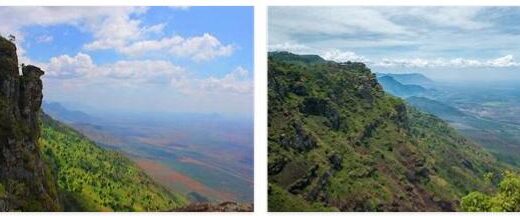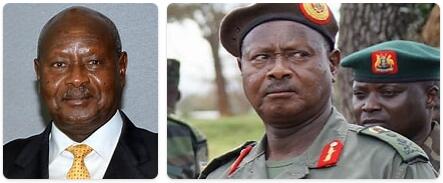Nigeria Government and Politics
State and politics

Nigeria is Africa’s most populous state and, along with South Africa, the continent’s largest economy, thanks in large part to rich natural resources in the form of oil and natural gas. However, since independence, the country has been largely characterized by political concerns, coups, military dictatorships and widespread corruption.
GOVERNMENT
Nigeria is a federal, democratic presidential state. The president is elected for four years in general elections and is head of state, commander-in-chief and head of government. To be elected president, a candidate must receive the majority of the total number of votes and at least a quarter of the vote in at least two-thirds of the states. All 36 states must be represented by at least one government minister appointed by the president.
The National Assembly has the legislative power and consists of two chambers: the Senate and the House of Representatives. The Senate has 109 members, three from each of the 36 states and one representing the metropolitan area. The 360 members of the House of Representatives are elected by majority vote in one-man constituencies. The term of office of both chambers is four years.
The states are governed by a people-elected governor and have a legislative chamber.
Policy
Political and military power has traditionally been located in the north, while economic power has its center in the south. Nigeria is an extremely heterogeneous country with severe ethnic, religious and regional tensions, which caused a devastating civil war in 1967-70 (see Biafra). In addition, internal conflicts intensified during the 1980s due to a stagnant economy. The lack of political stability has led Nigeria to have been a military dictatorship for most of the time after independence. Civilian, democratically elected governments have had Nigerians 1960-66 and 1979-83 and since 1999.
Following the sudden death of dictator Sani Abacha in 1998, a military provisional government implemented a swift transition to civilian rule. The result of the general elections held under military rule in 1997 was canceled, the parties approved by the military dissolved and other militarily dominated political institutions were dissolved.
Since the reign of civilian government in 1999 and former junta leader Olusegun Obasanjo was elected president, Nigeria has had a number of difficult problems to contend with. The ethnic and religious contradictions between the south and the north, which were partially suppressed under the military rule, have increased to a greater extent, especially since several states of the north have introduced sharia, Islamic law. Ethnic rivalry, usually linked to competition for scarce financial resources, has led to bloody conflicts in several states.
During the 2000s, a conflict with particularly serious economic consequences occurred in the oil producing areas of the Niger Delta. A large number of kidnappings by foreign personnel and armed attacks on the oil companies’ facilities have periodically led to sharply reduced production.
In the 2010s, the militant Islamist group Boko Haram committed a long series of bloody terrorist attacks, and the 2015 presidential election was postponed due to the group’s military success in the northeastern part of the country. Widespread corruption and repeated gross election fraud have eroded confidence in the democratic system. At the same time, however, Nigeria, by virtue of its economic strength, has been able to take a position as a language conduit for the whole of Africa and has a prominent role as mediator in conflicts around the continent.
Nigerian politics has been dominated by the People’s Democratic Party (PDP), which has been in office since 1999. In the 1999, 2003, 2007 and 2011 elections, the party gained a majority in both the Senate and the House of Representatives. All three presidents in 1999–2015 also represented the PDP. Obasanjo was re-elected in 2003 in a choice where cheating occurred, although it was not considered to affect the outcome. Prior to the 2007 elections, the Senate stopped attempts to change the constitution so that Obasanjo could stand for a third term. He was succeeded by Umaru Yar’Adua, who received just under 70 percent of the vote. This time too, the choice was surrounded by suspicions of cheating.
Yar’Adua died in 2010 after a period of illness, during which it was uncertain who really had the power. Vice President Goodluck Jonathan eventually took over and he was sworn in as president when Yar’Adua passed away. When Jonathan announced before the 2011 elections that he intended to stand, he withdrew the informal agreement within the PDP that the presidential post should be held eight years at a time by someone from Northern and Southern Nigeria, respectively. Jonathan received 59 percent of the vote already in the first round, defeating his toughest competitor, former Major General Military dictator Muhammadu Buhari, which in 1983-85 ruled Nigeria as a military dictator. He had the strongest support in the Muslim northern parts, while Jonathan had his power base in the Christian south. Violent crows erupted in the north since the election results were published.
In 2015, Buhari succeeded in his fourth attempt to be elected president. He thus became the first in the country’s history to defeat a sitting president in an election. Buhari is also the first president since the return to civilian government in 1999 that does not represent the PDP, but the All Progressives Congress (APC). The APC also took over the majority in both chambers of the National Assembly.
The 2015 elections were postponed by six weeks, according to the government and the army because security in the northwest, where Boko Haram reached territorial success, could not be guaranteed. Although some irregularities were reported, the election was judged fair. A contributing reason for this was that the country’s electoral commission implemented reforms that hamper electoral fraud. The fact that a challenger to the incumbent president has been declared a electoral winner, and that Goodluck Jonathan accepted the election results, indicates that Nigeria has taken significant steps in its democratic development.
In the 2019 elections, the PDP lined up with former Vice President Atiku Abubakar (born 1946). However, he had to be defeated by President Buhari, who captured 56 percent of the vote against Abubakar’s 41 percent. The election was canceled at the last moment by the electoral authority, which had difficulty getting material to all polling stations, and was held a week later than was actually intended. Election Day and the days before were violent in many places with dozens of deaths.
Nigeria, along with South Africa, is Africa’s most influential country. It advocates for a Western foreign policy and is a member of the UN, the Commonwealth (suspended 1995–99), the African Union (AU), OPEC and the West African Economic Cooperation Organization ECOWAS.
Judiciary
The legal system in Nigeria is still based on English legal traditions, in combination with domestic legislation and customary law. In each state there is a High Court, whose decisions can be appealed to a federal appellate court and further to the Supreme Court. In some parts of the country, there are also Islamic courts and special courts of customary law. The death penalty is punished for some serious crimes.
Human Rights
Nigeria is characterized by ethnic, religious and regional conflicts, and since the fall of the military dictatorship, conflicts based on religion and/or ethnicity have increased. In many parts of the country there are extensive riots with violent clashes between Muslims and Christians with large groups of internal refugees as a result.
Poverty and corruption are widespread, especially in the oil-rich Niger Delta. Police corruption is a serious problem and reports show that the police routinely require bribes by crime victims to investigate crimes and by suspects to shut down investigations. The Nigerian police have also been involved in repeated violations of human rights, including extrajudicial executions, torture, arbitrary arrests and blackmail.
Several regions have introduced sharia laws. Although the regions claim that the law applies only to Muslims, the non-Muslim population believes that they are also affected by the law, partly by limiting women’s right to move freely in society. The Sharia-based criminal laws in the northern regions criminalize the consent of homosexual behavior with impunity, imprisonment or death by stoning. Throughout the country, male homosexuality is prohibited and the punishment is usually prison. The risk of reprisals and social stigma means that homosexuals are forced to hide their attitudes. The north-eastern parts of the country are also affected by the Islamist terror group Boko Haram, which has destroyed several villages and killed thousands of people.
Freedom of information and press freedom in Nigera is limited, partly because of Boko Haram’s ravages. The government does not allow the media to report freely on security issues, while using propaganda to make the situation in the country seem less serious. In addition, independent media are often exposed to threats and violence. In Reporters Without Borders Press Freedom Index for 2015, Nigeria is ranked 111 out of 180 countries surveyed.
Since 1999, there has been no nationwide welfare or health care system. Many hospitals lack adequate medical staff and medicines are a scarcity. The most difficult situation is the rural situation.
Child labor is extensive despite prohibitions in law. The sectors that children are utilized in are everything from housework and street sales to mineral mining. It is also common for children to be exploited for begging and sex trafficking. Crimes such as abuse and sexual abuse of children and women are major social problems but are rarely reported due to prevailing social norms and the risk of social stigma.
Heads of State
Presidents
| 1963-66 | Nnamdi Azikiwe |
| 1966 | Johnson Aguiyi-Ironsi |
| 1966-75 | Yakubu Gowon |
| 1975-76 | Murtala Ramat Mohammed |
| 1976-79 | Olusegun Obasanjo |
| 1979-83 | Shehu Shagari |
| 1983-85 | Muhammadu Buhari |
| 1985-93 | Ibrahim Babangida |
| 1993 | Ernest Shonekan |
| 1993-98 | Sani Abacha |
| 1998-99 | Abdulsalami Abubakar |
| 1999-2007 | Olusegun Obasanjo |
| 2007-2010 | Umaru Yar’Adua |
| 2010-15 | Goodluck Jonathan |
| 2015- | Muhammadu Buhari |



